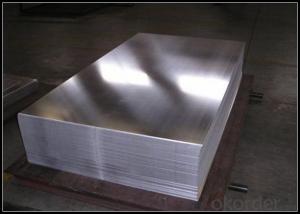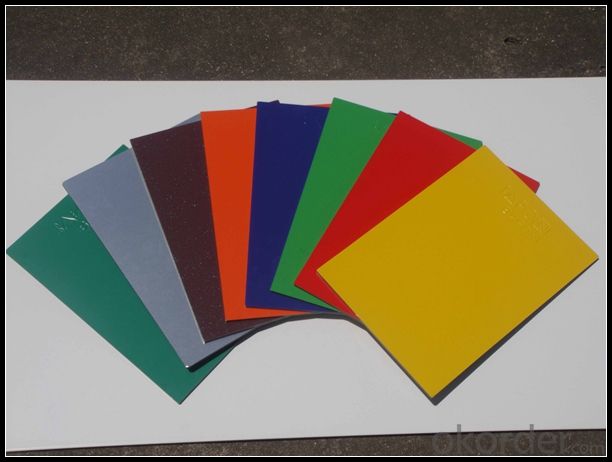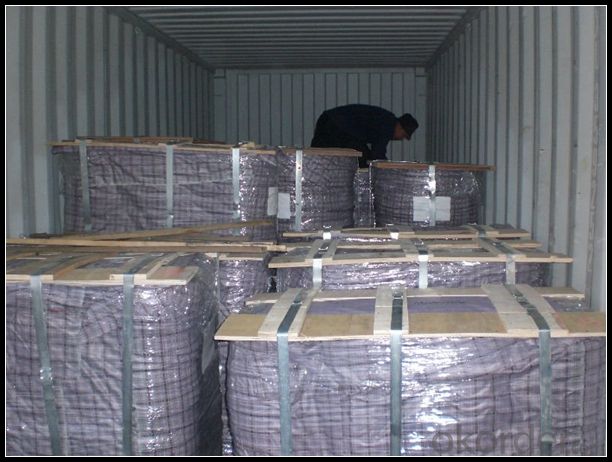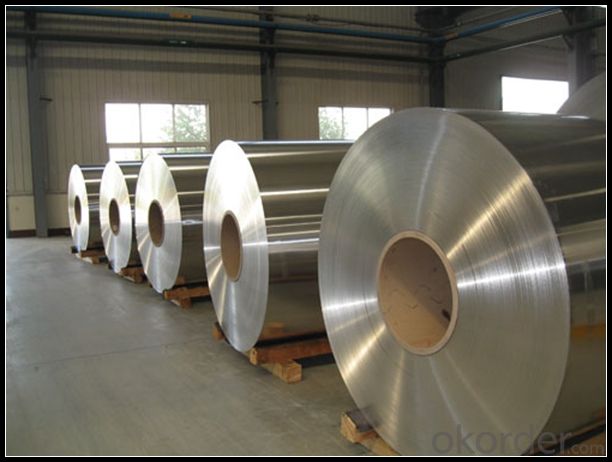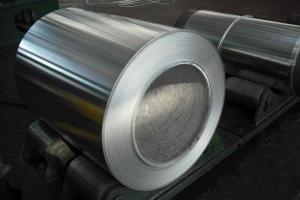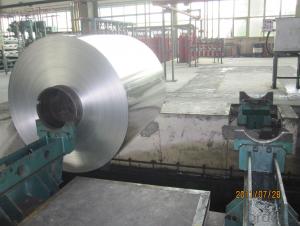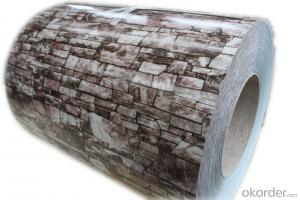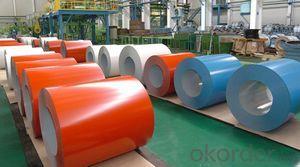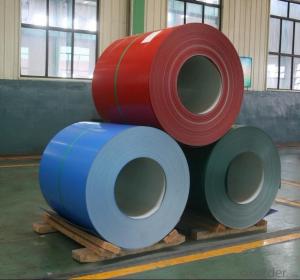5083 Aluminum Coils for Sale - High Quality AA1100/AA1070 Aluminum Coils
- Loading Port:
- Dalian
- Payment Terms:
- TT OR LC
- Min Order Qty:
- 8 m.t.
- Supply Capability:
- 2000 m.t./month
OKorder Service Pledge
OKorder Financial Service
You Might Also Like
Specification
Thickness | 0.1mm-8mm |
Popular Thickness | 0.1mm/0.2mm/0.25mm/0.3mm/0.6mm/0.8mm/1.0mm/1.2mm/1.5mm/2.0mm/3.0mm |
Width | 20mm-2500mm |
inner diameter | 76mm / 152mm |
Material | AA1050, AA1060, AA1070, AA1100, AA1235, AA3003, AA3004, AA3005, AA5052, AA5005, AA5754, AA5083, AA8011, AA8079, etc |
Temper | O,H12,H14,H16,H18,H22,H24,H26,H32,H34,H36,H38, |
Surface | Mill finish / Coated |
Packing | Export standard wooden pallets |
Payment Terms | 100% irrevocable L/C at sight or 30% T/T in advance as deposit,70% balance against the B/L copy |
Minimum Order Quantity | 5000kg |
Delivery time | 30-35 days after the receiving L/C or deposit |
2. Application of
(1) Interior: wall cladding, ceilings, bathrooms, kitchens and balconies, shutters, doors, windows,
(2) Exterior: wall cladding, facades, roofing, canopies, tunnels,column covers , renovations.
(3).Advertisement: display platforms, signboards, fascia, shop fronts.
3. Feature of
*Such coil is specially designed to replace aluminum ingot, due to the high export tax of aluminum ingot, the coil has better price than ingot.
*This type of coil can fit customer's remelting furnace just like ingot, no need to make any change to the production line that was previously used for ingot. The standard coil size and weight is very suitable for the feed gate of furnace.
*This type of coil causes less material wastage than ingot when remelted.
*Our coil is made directly from ore, no need to go though the ingot making process, quality is much better than other suppliers who use ingot scrap to make coil.
Be free from Oil Stain, Dent, Inclusion, Scratches, Stain, Oxide Dicoloration, Breaks, Corrosion, Roll Marks, Dirt Streaks and other defect which will interfere with use
4. Certificate:
SGS and ROHS (if clients request, paid by client), MTC (plant provided), Certificate of Origin (FORM A, FORM E, CO), Bureau Veritas (if client request, paid by client), CIQS certificate and so on.
5. Image of
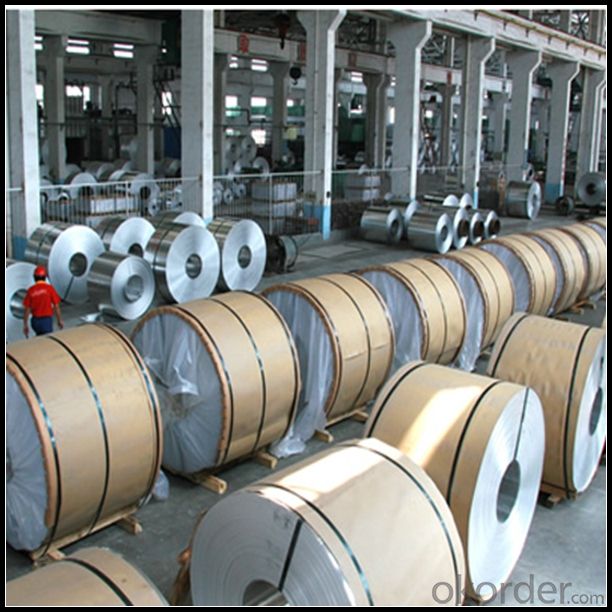
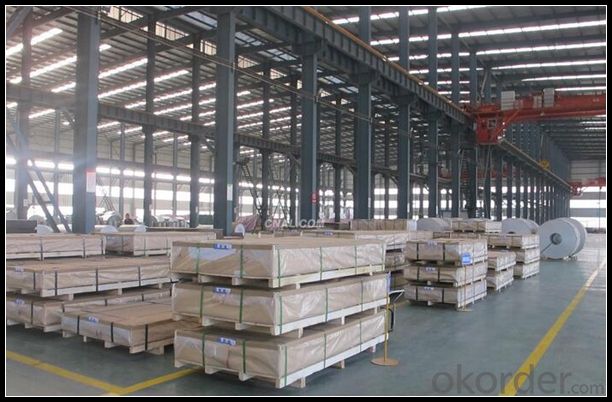
6. Package and shipping of
Eye to wall
Eye to the wall
With wood pallet (wooded case also available)
7. FAQ
1) What is the delivery time?
Depends on actual order, around 30 to 35 days
2) What is the QC system?
We have QC staff of 20 persons and advanced equipment, each production is with MTC traced from Aluminum ingot lot.
3) What market do you mainly sell to?
Australia, America, Asia, Middle East, Western Europe, Africa etc
- Q: G'day guys, I'm wanting to get the tinnie out but im not looking on spending to much on oars, Aluminum ones are quite cheap i can pick some up for $50, but i was just wondering if there any good? anyone had good or bad experience with them? and would it just be worth forking out extra for wooden ones?
- Aluminium will make o.k. paddles, but as oars won't be as good as wood. Wood flexes and works differently, unless the aluminium oars have weight in the handles they will not near balance. Cheap wood oars aren't balanced well either, and this is a significant fault. Unless you have used good oars you won't know the difference, but it is very real. Don't like them myself, if money is the issue they will work over short distances, but thats all. Connections and seams tend to corrode over time and let you down with no warning right when you need them - those things clipped on inflatables are a good example of that...
- Q: Is it possible to use aluminum coils for decorative purposes in a garden setting?
- <p>Yes, aluminum coils can be used for decoration in the garden. They are lightweight, durable, and resistant to corrosion, making them suitable for outdoor use. You can form them into various shapes or use them to create unique garden structures such as trellises, sculptures, or even as part of a fence. Their metallic finish can add a modern or industrial touch to your garden's aesthetic, and they can be painted or left in their natural state to blend with different garden themes.</p>
- Q: How do aluminum coils contribute to lightweight vehicle design?
- Aluminum coils play a crucial role in achieving lightweight vehicle designs due to their unique properties and manufacturing processes. Aluminum is a lightweight material itself, weighing about one-third of the weight of steel, making it an ideal choice for lightweight vehicle design. When aluminum is formed into coils, it provides several benefits that contribute to the overall weight reduction of the vehicle. Firstly, aluminum coils are highly formable, allowing complex shapes to be achieved using less material. This property enables automakers to design intricate body panels and structural components that are not only lightweight but also offer improved aerodynamics and fuel efficiency. The ability to form aluminum coils into intricate shapes also allows for increased design flexibility, leading to more innovative and visually appealing vehicle designs. Secondly, aluminum coils offer exceptional strength-to-weight ratio, making them an excellent choice for structural components. Despite being lightweight, aluminum coils provide excellent structural integrity, ensuring the vehicle's safety and durability. By incorporating aluminum coils into the vehicle's chassis, suspension systems, and other critical components, automakers can reduce weight while maintaining the necessary strength and rigidity required for safe operation. Furthermore, aluminum coils have excellent corrosion resistance, which is essential for the longevity of the vehicle. Corrosion can significantly impact a vehicle's structural integrity and overall performance. By using aluminum coils, automakers can reduce the risk of corrosion-related issues, leading to longer lifespan and reduced maintenance costs. Lastly, the use of aluminum coils helps in reducing the overall weight of the vehicle, resulting in improved fuel efficiency and reduced greenhouse gas emissions. Lighter vehicles require less energy to accelerate and maintain speed, leading to better fuel economy. This benefit is increasingly important as the automotive industry focuses on developing more sustainable and eco-friendly vehicles. In conclusion, aluminum coils contribute significantly to lightweight vehicle design by offering high formability, exceptional strength-to-weight ratio, corrosion resistance, and overall weight reduction. These properties enable automakers to design vehicles that are not only lighter but also safer, more fuel-efficient, and visually appealing. As the demand for lightweight vehicles increases, aluminum coils play a vital role in achieving these design goals.
- Q: What are the potential drawbacks or limitations of using aluminum coils?
- There are several potential drawbacks or limitations associated with using aluminum coils. Firstly, aluminum is a relatively soft metal compared to other coil materials like copper or steel. This softness can make the aluminum coils more vulnerable to damage, such as denting or bending, especially in high-impact environments. Additionally, aluminum is prone to corrosion, particularly in harsh or corrosive environments, which can negatively impact the performance and lifespan of the coils. Another limitation of aluminum coils is their lower thermal conductivity compared to copper coils. This means that aluminum coils may not be as efficient in transferring heat, which can result in decreased cooling or heating performance in certain applications. Additionally, the lower thermal conductivity may lead to higher energy consumption, as the system would need to work harder to achieve the desired temperature. Moreover, when aluminum coils are used in HVAC systems, there can be compatibility issues with certain refrigerants. Aluminum can react with certain refrigerants, causing corrosion or other chemical reactions that may compromise the performance and longevity of the coils. This requires careful consideration and compatibility testing when selecting the refrigerant to be used with aluminum coils. Lastly, the cost of aluminum coils can be higher compared to other coil materials. While aluminum itself is relatively inexpensive, the manufacturing process of aluminum coils can be more complex and costly, which can impact the overall cost of the product. Despite these drawbacks, aluminum coils are still widely used in various industries due to their lightweight nature, good electrical conductivity, and resistance to certain types of corrosion. However, it is essential to carefully assess the specific application, environment, and requirements before selecting aluminum coils to ensure they are the most suitable choice.
- Q: What are the different types of aluminum alloy used in coil production?
- There are several different types of aluminum alloy used in coil production, each with its own unique properties and characteristics. Some of the most commonly used aluminum alloys in coil production include: 1. 1100 Aluminum Alloy: This type of alloy is known for its excellent corrosion resistance and high thermal and electrical conductivity. It is often used in applications where strength is not a primary concern, such as in food and beverage packaging. 2. 3003 Aluminum Alloy: This alloy is commonly used in coil production due to its moderate strength and good formability. It is often used in roofing and siding applications, as well as in the manufacture of HVAC components. 3. 5052 Aluminum Alloy: This alloy is known for its high strength and excellent corrosion resistance, making it ideal for use in marine and automotive applications. It also has good formability and is often used in the production of fuel tanks and body panels. 4. 6061 Aluminum Alloy: This alloy is a versatile and widely used aluminum alloy that offers a good balance of strength, formability, and corrosion resistance. It is commonly used in a variety of applications, including structural components, automotive parts, and aerospace components. 5. 7075 Aluminum Alloy: This alloy is known for its high strength-to-weight ratio and excellent fatigue resistance. It is often used in applications where strength and durability are critical, such as in the aerospace industry. These are just a few examples of the different types of aluminum alloys used in coil production. Each alloy has its own unique properties that make it suitable for specific applications, and manufacturers choose the appropriate alloy based on the desired characteristics of the final product.
- Q: Can aluminum coils be used for seamless gutters?
- Yes, aluminum coils can be used for seamless gutters. Aluminum is a popular choice for seamless gutter installations due to its durability, lightweight nature, and resistance to corrosion. The coils can be easily shaped and formed to create a seamless gutter system that effectively directs rainwater away from the building.
- Q: Can aluminum coils be used in solar thermal systems?
- Yes, aluminum coils can be used in solar thermal systems. Aluminum is a commonly used material for heat transfer in such systems due to its excellent thermal conductivity and corrosion resistance.
- Q: How does the alloy composition affect the properties of aluminum coils?
- The properties of aluminum coils are significantly influenced by their alloy composition. To enhance specific characteristics, aluminum is often combined with elements like copper, manganese, magnesium, and zinc. The strength of aluminum coils is a key property that is impacted by the alloy composition. Copper and zinc alloys, such as the popular 6061 or 7075 aluminum alloys, are renowned for their high strength, making them suitable for structural purposes. Conversely, manganese and magnesium alloys, like the 3003 or 5052 aluminum alloys, offer improved formability and are commonly used in the construction of automotive components or packaging materials. Corrosion resistance is also affected by the alloy composition of aluminum coils. For example, the addition of magnesium in alloys like 5052 or 5083 enhances their resistance to corrosion in marine environments, making them ideal for boat building or other marine applications. On the other hand, copper alloys possess excellent resistance to atmospheric corrosion and are frequently utilized in outdoor structures or architectural applications. The thermal conductivity of aluminum coils is another crucial property impacted by the alloy composition. Copper alloys exhibit high thermal conductivity, making them efficient for heat transfer applications such as heat exchangers or radiators. Aluminum-magnesium alloys, like 3003 or 3004, have lower thermal conductivity, making them suitable for applications where heat dissipation is desired, such as heat sinks in electronic devices. Additionally, the alloy composition can influence the electrical conductivity of aluminum coils. Copper alloys, with their high electrical conductivity, are commonly used in electrical wiring and conductors. However, aluminum-magnesium alloys, despite having lower electrical conductivity than copper, are still widely employed in electrical transmission lines and overhead power cables due to their lightweight nature. In conclusion, the alloy composition of aluminum coils plays a crucial role in determining their properties. It affects their strength, corrosion resistance, thermal conductivity, and electrical conductivity, allowing them to be customized for specific applications.
- Q: Is it possible to create a baking pan using aluminum coil material?
- <p>Yes, you can use aluminum coil to make a baking pan. Aluminum is a popular material for baking pans due to its excellent heat conductivity, which allows for even heating. When creating a baking pan from aluminum coil, ensure that the coil is food-grade and that the edges are properly sealed to prevent any sharp edges. It's also important to consider the thickness of the aluminum, as a thicker gauge will distribute heat more evenly. Always follow safety guidelines and ensure that the aluminum coil is suitable for use in an oven.</p>
- Q: Can aluminum coils be used in the production of military equipment?
- Indeed, the utilization of aluminum coils in the manufacturing of military equipment is possible. The utilization of aluminum, a lightweight and long-lasting substance, provides numerous benefits for military applications. Its high strength-to-weight ratio renders it a popular choice for constructing military vehicles, aircraft, and naval vessels. Aluminum coils possess the capacity to be molded into diverse shapes and sizes, making them adaptable for fabricating various components such as armor plating, weapon systems, and structural parts. Furthermore, aluminum exhibits commendable resistance to corrosion, a crucial attribute for military equipment operating in harsh environments. In general, aluminum coils are a dependable and extensively employed material in the production of military equipment.
Send your message to us
5083 Aluminum Coils for Sale - High Quality AA1100/AA1070 Aluminum Coils
- Loading Port:
- Dalian
- Payment Terms:
- TT OR LC
- Min Order Qty:
- 8 m.t.
- Supply Capability:
- 2000 m.t./month
OKorder Service Pledge
OKorder Financial Service
Similar products
Hot products
Hot Searches
Related keywords
